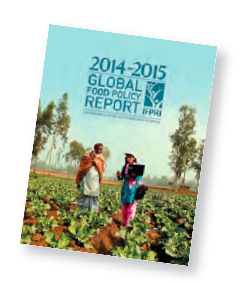The power of WASH: why sanitation matters for nutrition
 Summary of Chapter 3 of the 2014-2015 Global Food Policy Report by Dean Spears and Lawrence Haddad, available on IFPRI website.
Summary of Chapter 3 of the 2014-2015 Global Food Policy Report by Dean Spears and Lawrence Haddad, available on IFPRI website.
Water, sanitation, and hygiene (WASH) can have a profound effect on health and nutrition. In 2014, WASH and nutrition moved to the forefront of the development policy agenda and ending open defecation (OD) is now near the top of the world’s post-2015 Sustainable Development Goals. The authors cite observational evidence of a link between the dramatic reduction in OD rates in Bangladesh (from 34% in 1990 to 2.5% in 2012) and the improvement in stunting in Bangladesh over a similar period. However, with the exception of a study in Mali, impact evaluations, have not shown much evidence of WASH improving nutrition outcomes. This paper suggests that because the interventions are poor in changing behaviour around OD, the potential improvement in nutritional status is reduced. The authors call for investments in research to better understand how to change behaviour and promote latrine use, especially in societies where OD is widespread and latrine use is resisted. The authors also state that governance arrangements and state capacities may limit the effectiveness of a convergence of WASH and nutritional programming at national levels.

